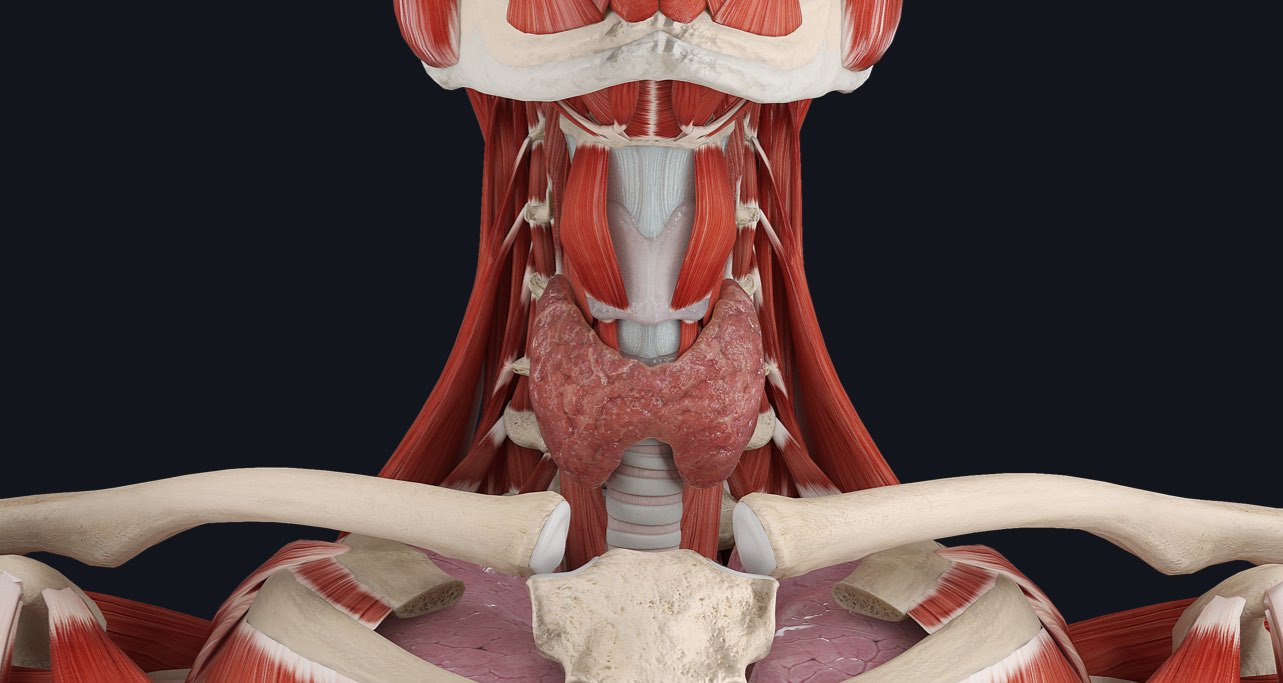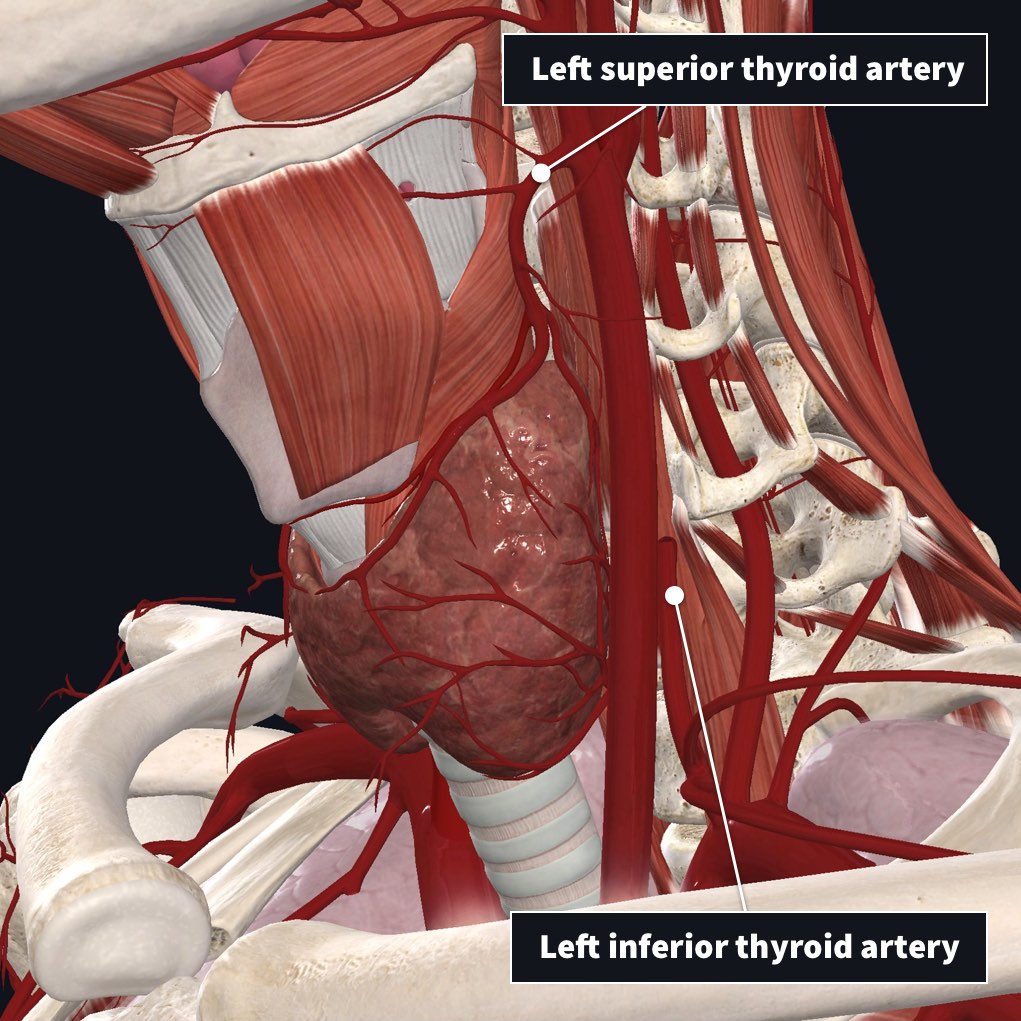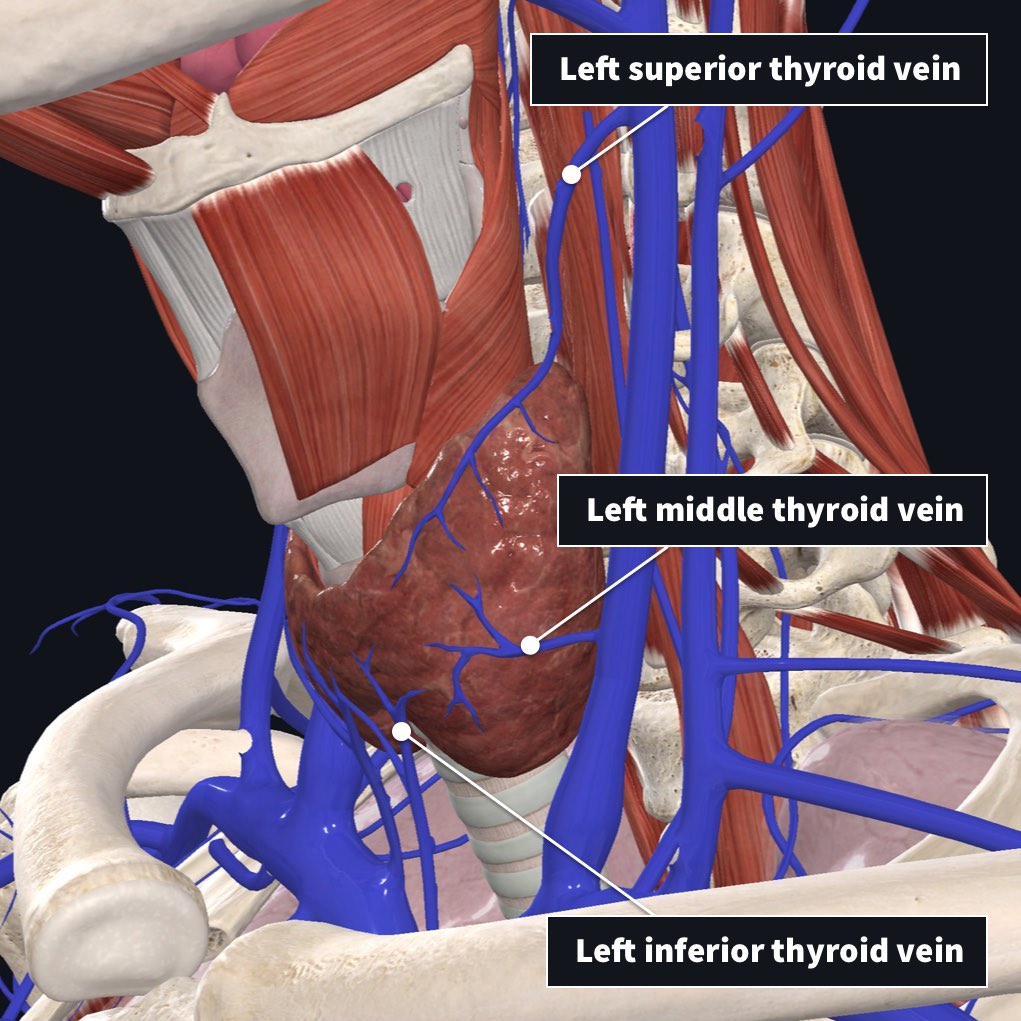
Within our neck lies a small butterfly-shaped gland that works with multiple parts of our body ?. This gland is the thyroid. It sits just below the larynx and is comprised of two lobes. These lobes rest on the trachea and together weigh less than an ounce.
As a part of the endocrine system, the thyroid works closely with the pituitary gland to release hormones that target different parts of the body. It is stimulated by iodine that we source from our diet. This stimulation leads to the production of the thyroid hormones thyroxine (T4) and triiodothyronine (T3). These hormones guide numerous processes such as; metabolism, digestion, fertility, weight loss, and aging.

To facilitate transfer of these hormones, the thyroid is highly vascularized. The paired superior and inferior thyroid arteries supply the majority of the gland. The superior artery branches from the internal carotid, while the inferior branch stems from the thyrocervical trunk. 10% of people have a thyroid ima artery arising from the brachiocephalic trunk to supply the isthmus of the gland. Venous drainage is carried out by superior, middle, and inferior thyroid veins that form a plexus.

Thyroid function disorders vary and can often be difficult to diagnose, some are:
Hyperthyroidism- Overproduction of thyroid hormones. Symptoms include; anxiety, insomnia, fatigue, weight loss, and heart palpitations ?.
Hypothyroidism- Underproduction of thyroid hormones. Symptoms include; weight gain, depression, hair loss, constipation, dry skin, cold intolerance, slow heart rate, and lethargy ?.
For a healthy thyroid, experts advise to cut gluten from the diet and consume more vitamin D, iron, selenium, and zinc ?. Foods that can inhibit thyroid health are raw cruciferous vegetables, soy, sugar and caffeine ☕.
Explore all the organs of the endocrine system with the world’s most advanced 3D anatomy platform, complete with detailed model of the suprarenal gland. Unlock the learning power of 3D anatomy today and try it for free.
